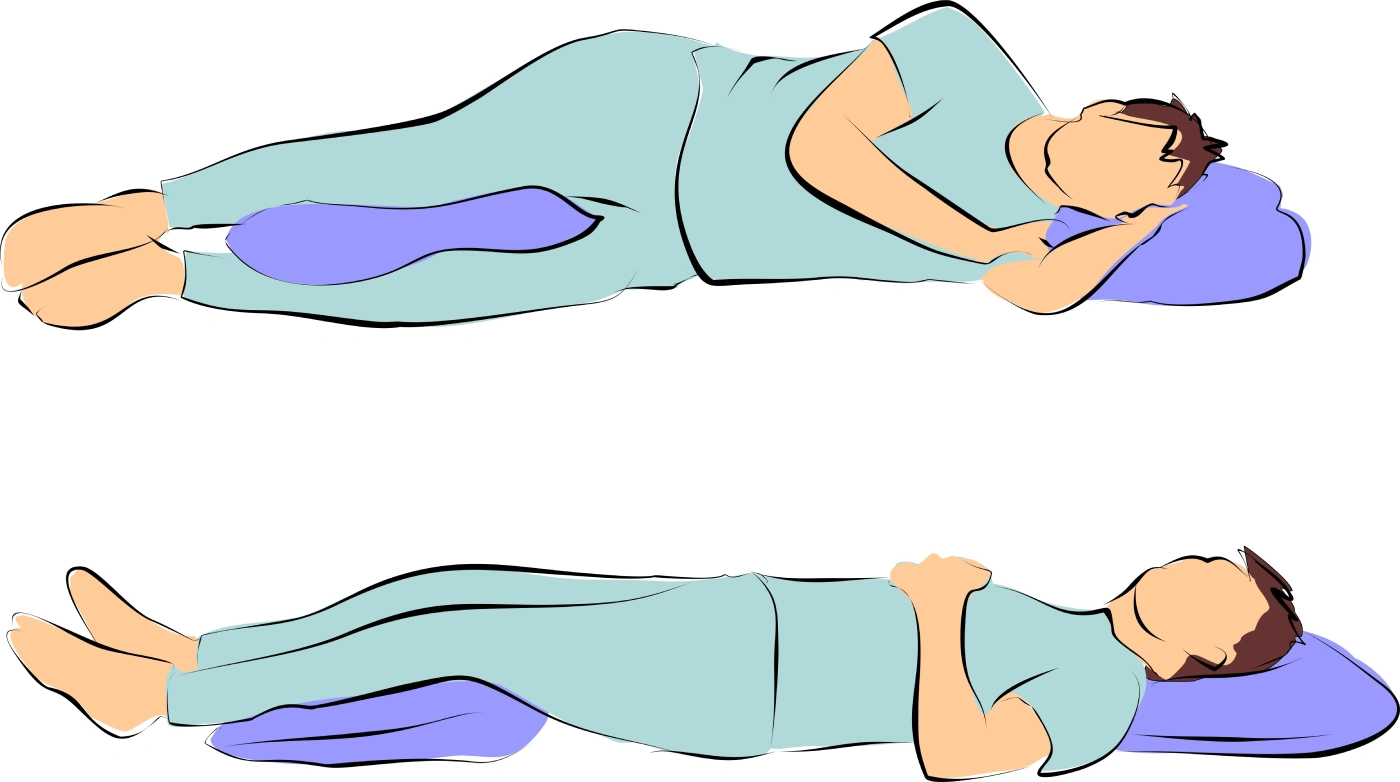Factors affecting sleep
In this blog post, we will explore the factual data behind these factors and delve into how they can influence the quality of our sleep.
By gaining insight into these factors, we can make informed decisions and adopt healthy habits that promote better sleep patterns.
The Importance of Sleep and its Impact on Overall Health
Sleep is essential for overall health and well-being.
It is a natural process that helps us to recover from physical and mental exhaustion, promotes tissue repair, and strengthens the immune system.
Lack of sleep or poor quality sleep can have a significant impact on our physical and mental health. Here are some of the ways that sleep impacts our health:
- Brain function: Sleep is important for cognitive function, memory consolidation, and learning.
- Lack of sleep can impair attention, concentration, and decision-making abilities.
- Mood: Adequate sleep is essential for regulating emotions and maintaining a positive mood.
- Chronic sleep deprivation can lead to irritability, mood swings, and depression.
- Physical health: Sleep is crucial for physical recovery, tissue repair, and immune system function.
- Lack of sleep has been linked to a wide range of health problems, including obesity, diabetes, cardiovascular disease, and weakened immune function.
- Performance: Getting enough sleep is important for athletic performance, reaction time, and motor skills.
- Lack of sleep can impair physical performance and increase the risk of injury.
- Safety: Sleep deprivation can increase the risk of accidents and injuries, especially in occupations that require alertness and attention, such as driving or operating heavy machinery.
In summary, sleep is a crucial component of overall health and well-being.
Adults should aim for 7-9 hours of sleep per night, while children and teenagers may require more.
If you are experiencing sleep problems or symptoms of sleep deprivation, it is important to speak with a healthcare provider to identify any underlying causes and develop a plan to improve your sleep habits.
Biological Factors affecting sleep
Two major biological factors that affect sleep are the circadian rhythm and the hormone melatonin.
- Circadian Rhythm and the Sleep-Wake Cycle
The circadian rhythm is an internal biological clock that regulates the sleep-wake cycle in humans and other animals.
It is responsible for the timing of daily physiological and behavioral processes, including sleep and wakefulness.
The circadian rhythm is influenced by external cues such as light, which helps to synchronize the body’s internal clock with the external environment.
The sleep-wake cycle is a 24-hour cycle that is regulated by the circadian rhythm.
During the day, the body’s natural response to light is to increase alertness and suppress the production of the sleep-promoting hormone, melatonin.
In the evening, as light levels decrease, the body begins to produce more melatonin, which promotes sleepiness.
This helps to regulate the timing of sleep and wakefulness.
- Melatonin and its role in regulating sleep
It is a hormone secreted by the pineal gland in the brain that plays a major role in regulating the sleep-wake cycle.
Melatonin production is triggered by darkness and inhibited by light, which is why exposure to bright light in the evening can disrupt sleep.
Melatonin is involved in promoting sleepiness and regulating the timing of sleep.
It is often used as a sleep aid to help people with sleep disorders, such as insomnia, fall asleep faster and stay asleep longer.
Melatonin supplements can also be used to help reset the body’s internal clock in people who experience jet lag or shift work disorder.
In summary, the circadian rhythm and the hormone melatonin are two important biological factors that affect sleep.
Understanding these factors can help us develop strategies to improve sleep hygiene and promote better sleep habits.

Environmental Factors affecting sleep
Environmental factors can have a significant impact on sleep quality and quantity.
Here are some of the most important environmental factors that can affect sleep:
- Light: Exposure to bright light in the evening can disrupt the body’s natural production of melatonin, which can make it harder to fall asleep.
- It is important to limit exposure to bright light in the evening and to create a dark, quiet environment in the bedroom to promote sleep.
- Noise: Loud noises can disrupt sleep and make it harder to fall asleep or stay asleep.
- It is important to create a quiet environment in the bedroom by using earplugs or a white noise machine to block out external noises.
- Temperature: The temperature of the bedroom can also affect sleep quality.
- A room that is too hot or too cold can make it difficult to fall asleep or stay asleep.
- The optimal temperature for sleep is generally between 60-67 degrees Fahrenheit (15-19 degrees Celsius), although this can vary depending on individual preferences.
- A room that is too hot or too cold can make it difficult to fall asleep or stay asleep.
- Mattress and bedding: The comfort and quality of the mattress and bedding can also affect sleep quality.
- A mattress that is too soft or too firm, or bedding that is uncomfortable or too warm, can make it difficult to get a good night’s sleep.
- Electronic devices: The use of electronic devices, such as smartphones, tablets, and televisions, in the bedroom can interfere with sleep by emitting blue light that can disrupt the body’s production of melatonin.
- It is important to avoid using electronic devices in the bedroom, or to use devices with a blue light filter or in night mode.
In summary, environmental factors can have a significant impact on sleep quality and quantity.
Creating a dark, quiet, and comfortable sleep environment can help promote better sleep and improve overall health and well-being.

Lifestyle Factors affecting sleep
Lifestyle factors can also have a significant impact on sleep quality and quantity.
Here are some of the most important lifestyle factors that can affect sleep:
Stress and its Influence on Sleep
Stress and anxiety can make it difficult to fall asleep or stay asleep.
It is important to manage stress with relaxation techniques such as deep breathing, meditation, or yoga.
These techniques can help calm the mind and promote relaxation, making it easier to fall asleep.
Exercise and Sleep Quality
Regular exercise can improve sleep quality and duration.
However, exercising too close to bedtime can interfere with sleep by increasing alertness and body temperature.
It is recommended to finish exercising at least 2-3 hours before bedtime.
Diet and Sleep
What you eat and drink can affect your sleep.
Consuming caffeine, alcohol, or heavy meals close to bedtime can interfere with sleep quality.
It is important to avoid consuming these substances in the evening, and to eat a balanced diet that includes foods that promote sleep, such as warm milk, almonds, and cherries.
Sleep Disorders
There are several sleep disorders that can significantly impact sleep quality and quantity.
Here are some of the most common sleep disorders:
Insomnia and its Causes
It is a sleep disorder characterized by difficulty falling asleep, staying asleep, or waking up too early. Insomnia can be caused by a variety of factors, including:
- stress
- anxiety
- depression
- medical conditions
- medications
- and poor sleep habits.
Chronic insomnia can have a significant impact on physical and mental health, including fatigue, irritability, difficulty concentrating, and increased risk of accidents.
Sleep Apnea and its Effects on Sleep
Sleep apnea is a sleep disorder characterized by pauses in breathing or shallow breathing during sleep.
This can cause the person to wake up frequently throughout the night, leading to disrupted sleep and daytime sleepiness.
Sleep apnea can be caused by several factors, including obesity, smoking, alcohol use, and underlying medical conditions such as heart disease.
If left untreated, sleep apnea can increase the risk of high blood pressure, heart attack, stroke, and other health problems.
Restless Leg Syndrome (RLS)
RLS is a sleep disorder characterized by an uncomfortable sensation in the legs that is often described as aching, tingling, or crawling.
This sensation can cause an irresistible urge to move the legs, making it difficult to fall asleep or stay asleep.
RLS can be caused by several factors, including:
- iron deficiency
- pregnancy
- and certain medications.
RLS can have a significant impact on sleep quality and can lead to daytime fatigue and irritability.
In summary, insomnia, sleep apnea, and restless leg syndrome are three common sleep disorders that can significantly impact sleep quality and quantity.
If you are experiencing symptoms of a sleep disorder, it is important to speak with a healthcare provider to identify the underlying cause and develop a treatment plan to improve sleep quality and overall health.

Healthy Sleep Habits
Developing healthy sleep habits, also known as sleep hygiene, is important for promoting restful and restorative sleep.
Here are some tips for developing healthy sleep habits:
- Stick to a consistent sleep schedule
- Create a comfortable sleep environment
- Limit exposure to electronic devices
- Avoid caffeine, alcohol, and heavy meals close to bedtime
- Exercise regularly
- Manage stress Avoid napping during the day
In summary, developing healthy sleep habits can help promote restful and restorative sleep, and improve overall health and well-being.
Incorporate these tips into your daily routine to improve your sleep hygiene and improve your sleep quality.
Conclusion
sleep is a crucial component of overall health and well-being. Biological, environmental, and lifestyle factors can all Factors affecting sleep and quantity.
Developing healthy sleep habits, such as:
- sticking to a consistent sleep schedule
- creating a comfortable sleep environment
- and managing stress
- can help promote restful and restorative sleep.
If you are experiencing symptoms of a sleep disorder, it is important to speak with a healthcare provider to identify the underlying cause and develop a treatment plan to improve sleep quality and overall health.
Remember, making sleep a priority can have a significant impact on your physical and mental health, and improve your quality of life.
Know also: The importance of sleep for general health













